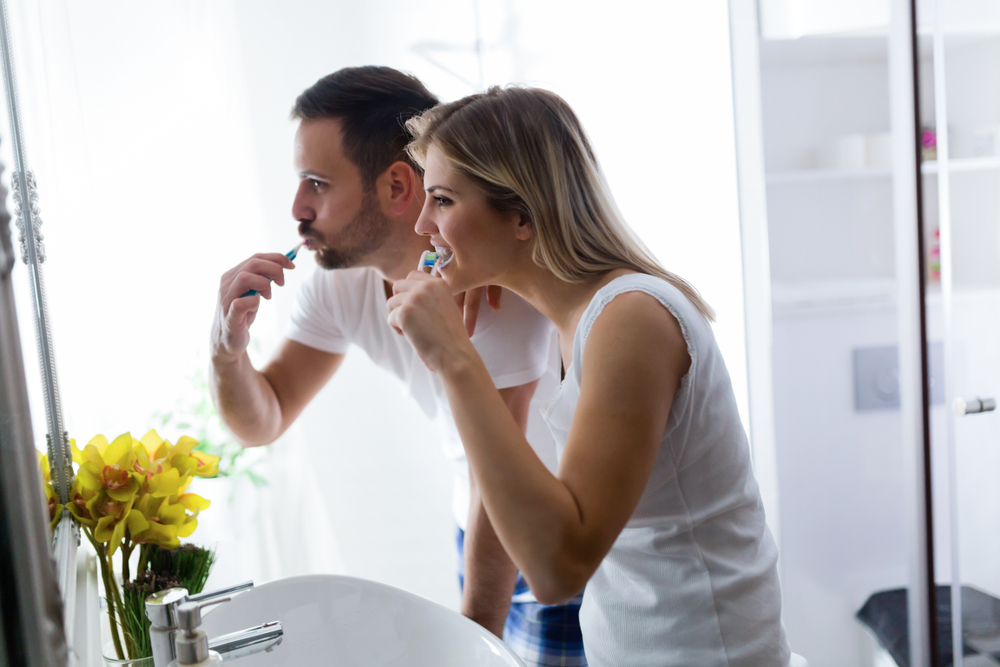
There’s no denying that the COVID-19 outbreak has changed how we live. From quarantines to face masks, we’ve all likely had to alter our routines in one way or another. But one important routine we should be paying attention to may be falling by the wayside, say dentists: our oral hygiene. And that could be a costly mistake.
One dentist, Dr. Kelley Mingus of Bend, Oregon, says there are multiple reasons that taking care of one’s oral health during the pandemic is crucial.
“The mouth is a gateway to the body,” says Mingus. “Not only does it allow bacteria into the body via the gumline, but it can cause many conditions such as diabetes that put you at a higher risk of complications if you contract coronavirus.”
The problem, however, is that many dental clinics aren’t open for routine care right now, making taking care of one’s oral health a challenge. Mingus says in lieu of regular checkups, patients should enhance their at-home routine to keep the mouth clean and extend the benefits of their last professional cleaning until they can get back into their regular dental cleaning routine.
“If you are home under quarantine, it should be easy to brush after every meal,” says Mingus. “So definitely brush after eating – even if you exceed the two times a day we recommend. That’s just a minimum.”
Mingus says it’s important to also floss your teeth at least once a day.
“Flossing cleans about 40 percent of the plaque and bacteria around your teeth – the 40 percent that can’t be reached by brushing alone,” he says.
Mingus says experts also recommend taking up tongue scraping during this time to help remove the same oral bacteria that accumulates at the gumline and enters the bloodstream. Some experts are even going as far as to recommend an old trend: oil pulling
“Oil pulling definitely removes surface stains if you have 20 minutes a day to commit to it,” says Mingus, “but it doesn’t whiten teeth. It may have a comforting effect on your gums if they are inflamed, though.”
This may be beneficial to helping to keep bacteria out of the gums, but Mingus says it’s not a proven science.
Other recommendations include not sharing toothbrushes and cups, and even going as far as to have your own dedicated oral hygiene products like floss and toothpaste.
“It may seem overly cautious, but it can really cut down on the spread of germs,” Mingus says.

